Diabetes and Pickles
Published: 22 Apr 2025
Living with diabetes often feels like giving up your favorite foods. Every snack decision brings stress and second-guessing. One common craving many people ask about: Can diabetics eat pickles? You will be happy to know you don’t have to say goodbye to this, but you do need to choose wisely.
Keep reading to learn which pickles are your friends, which ones are sneaky sugar traps, and how to snack smarter.
1- Can Diabetics Eat Pickles?
Yes, most medical experts agree that diabetics can eat pickles, but only in moderation.
However, the type of pickle matters a lot! Some are diabetes-friendly, while others can spike your blood sugar.
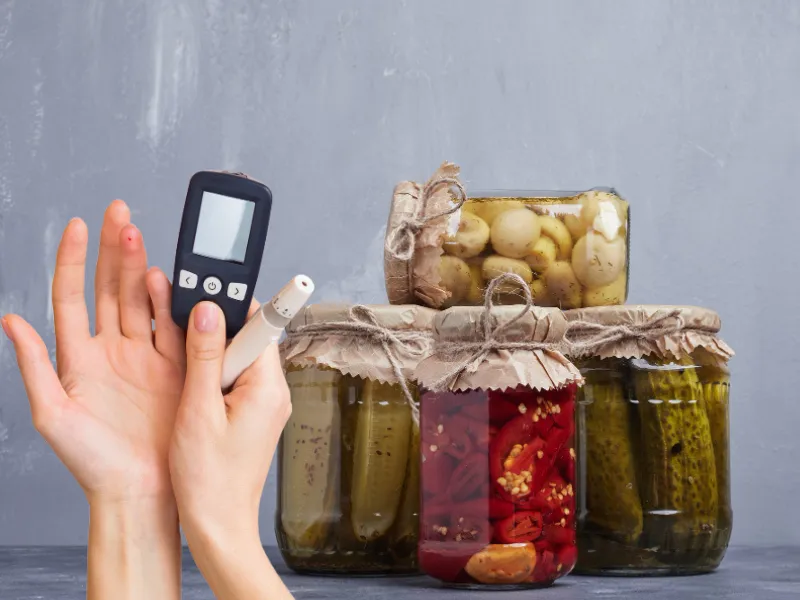
Quick Guide:
| Pickle Type | Diabetes-Friendly? |
| Dill Pickles | ✅ Good choice (low sugar) |
| Bread and Butter Pickles | ❌ Bad choice (high sugar) |
| Sweet Pickles | ❌ Bad choice (loaded with sugar) |
| Kosher Dill Pickles | ✅ Good choice (check label) |
| Sour Pickles | ✅ Good choice (low sugar) |
Always check the nutrition label for “added sugars” before buying. Even some “dill pickles” sneak in extra sugar.
Curious about which pickles are truly safe? Let’s have this!
2- Are Pickles Safe for Diabetics?
Pickles, especially in small amounts, generally have little to no impact on blood sugar.
2.1 Low Carbohydrate Content
Pickles, whether made with cucumbers or other vegetables, are typically very low in carbohydrates.
A small dill pickle has only 1–2 grams of carbs. (Source).
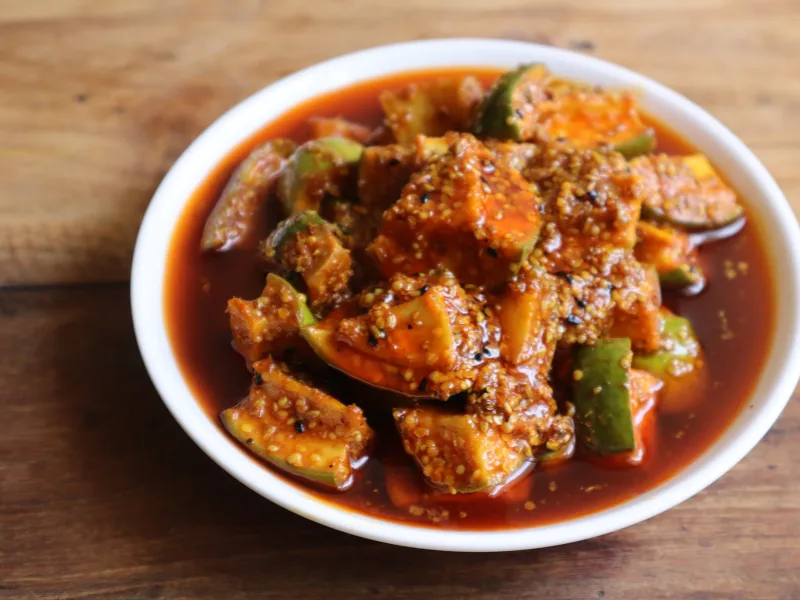
This means they don’t cause blood sugar spikes the way high-carb foods like bread, pasta, or sugary snacks do. (2)
One medium-sized dill pickle spear has less than 1 gram of carbohydrates, making it a practically carb-free food.
Wondering how pickles stack up against other low-carb foods? Keep reading!
2.2 Can Pickles Actually Help Blood Sugar?
Recent studies show that eating a little vinegar (1–2 tablespoons) before or with high-sugar foods can help control blood sugar. Pickled foods like pickles offer similar benefits.
One cool study found that adding vinegar to cold boiled potatoes lowered their sugar impact by 43%! The magic ingredient? Acetic acid.
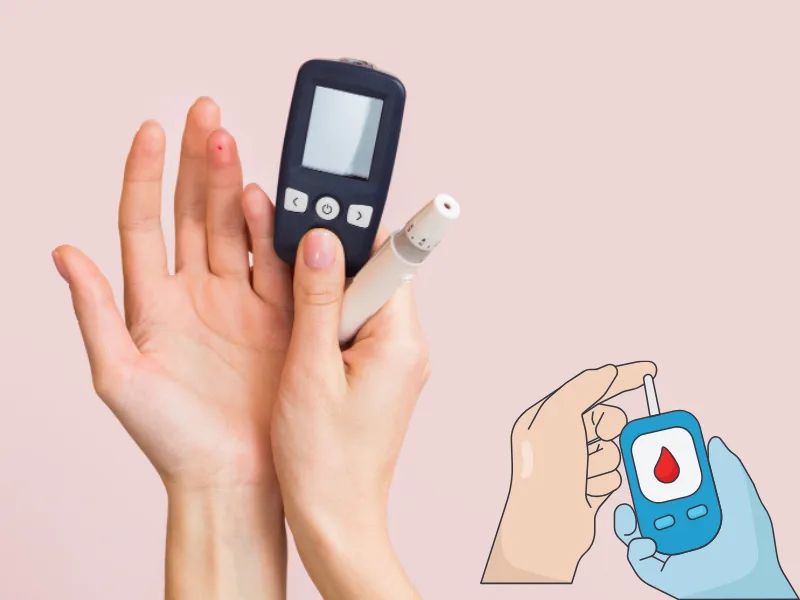
Experts believe vinegar helps by:
- Slowing down carb digestion
- Helping muscles take in more sugar
- Affecting the genes that control sugar metabolism
Similar benefits are seen when foods are fermented with lactic acid, too.
In short, fermentation and adding acids like vinegar to foods can make them healthier for blood sugar control. (1)
Pickles offer more than just crunch. Ready to find out what else they can do?
| 3- Hidden Health Benefits of Pickles for Diabetics |
|---|
Despite their sodium content, pickles can actually offer some health benefits for diabetics, provided they are eaten in moderation. 3.1 Probiotics for Gut Health:
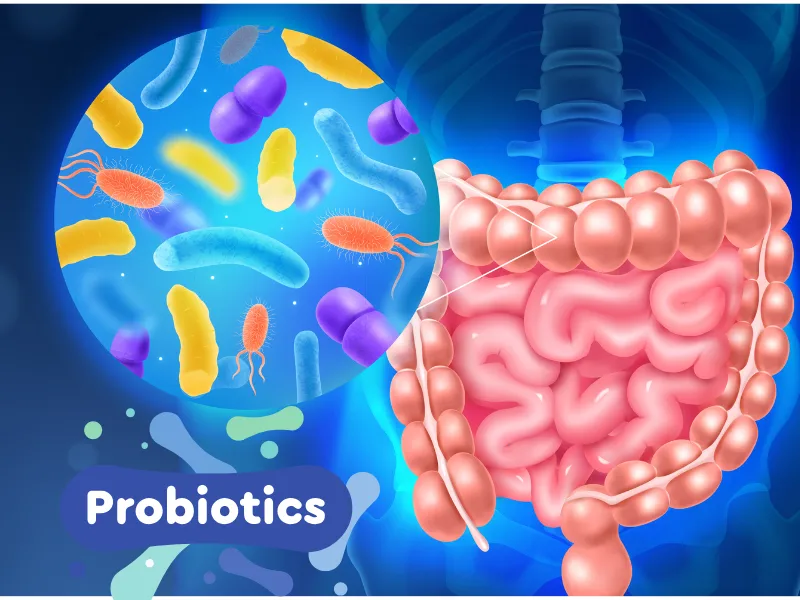
Fun Fact: Studies have shown that fermented foods like pickles can be a valuable part of a diabetic’s diet because they help maintain a healthy gut, which is important for overall health. 3.2 Adds Flavour Without Spiking Blood Sugar:One of the best things about pickles is that they can add bold flavour to meals without adding many calories or carbs. For people with diabetes, this can make food more enjoyable without the worry of blood sugar spikes. 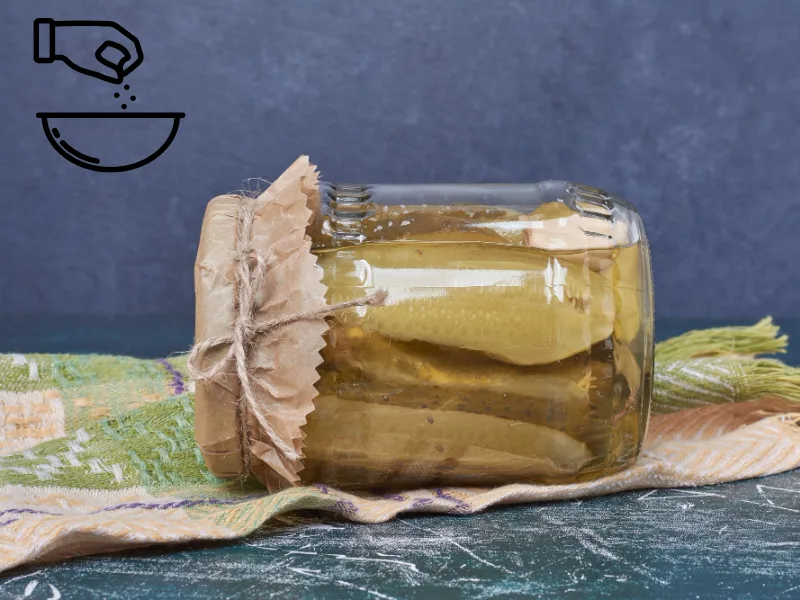 So, when you’re craving something salty or tangy, reaching for a pickle can be a great way to satisfy that craving in a diabetic-friendly way. |
Choose fermented pickles (like traditional sour pickles) instead of just vinegar-soaked ones to get these probiotic benefits.
Always check the label, look for words like “naturally fermented” or “live cultures.”
A healthy gut may also improve blood sugar control.
Don’t let hidden sugars and salt catch you off guard. Stay smart with these tips!
While pickles can be a tasty and safe snack for diabetics, there are some risks and things to be cautious about. Here’s what you should keep an eye on:
4.1 High Sodium Levels
Pickles, especially store-bought ones, can be very high in sodium (salt). Too much salt can lead to high blood pressure, which is a common issue for people with diabetes. High blood pressure can increase the risk of heart disease and other complications.
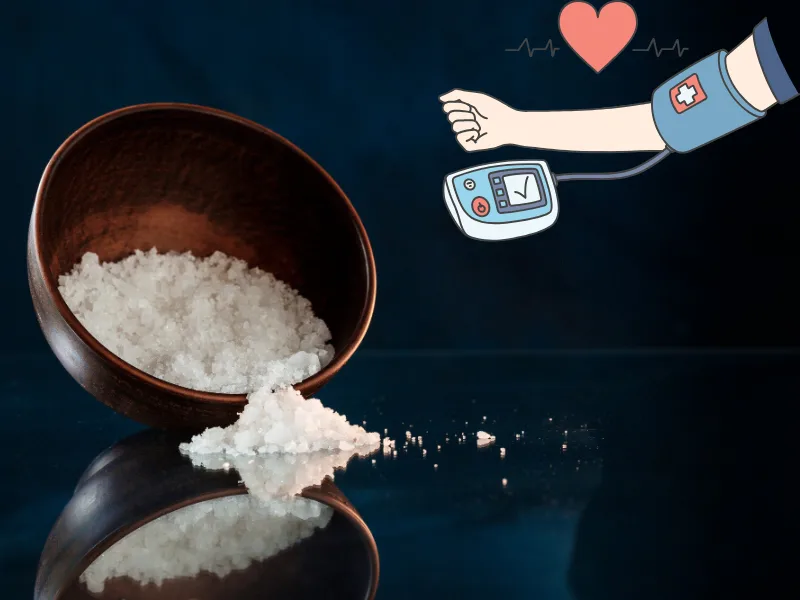
If you already have high blood pressure, go for low-sodium pickles
Many brands now offer low-sodium versions, so look for those to reduce the amount of salt in your diet.
4.2 Sugar in Some Pickles
Sweet Pickles = Hidden Sugars
It’s not just sodium you need to watch out for. Some pickles (especially sweet pickles) contain added sugars to enhance their flavour.
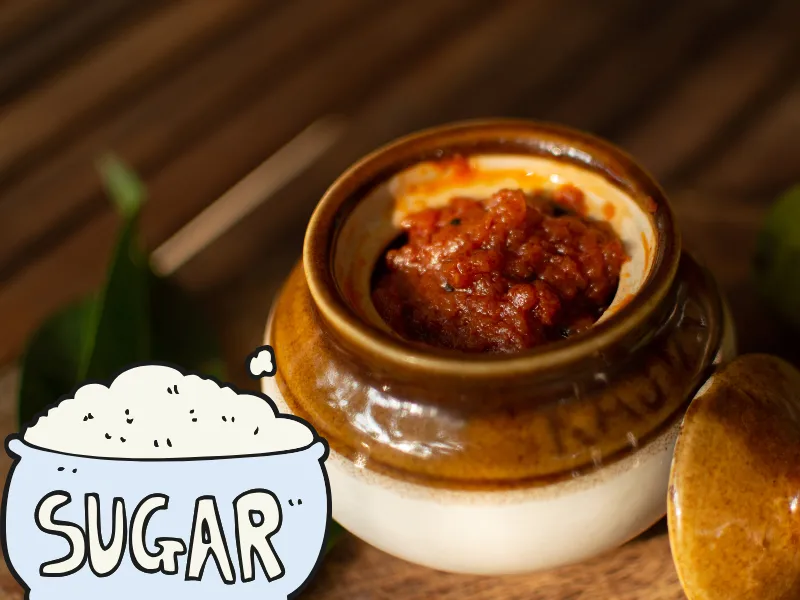
This sugar can raise your blood glucose levels, which is something you definitely want to avoid as a diabetic.
- Compare Labels:
Always read the nutrition label! Some sweet pickles can contain as much as 7 grams of sugar per small piece!
Example: “Some sweet pickles have 7g sugar per small piece!” (Source)
Choose “sugar-free” or “no added sugar” pickles when possible. This way, you can enjoy the crunch and flavour without worrying about extra sugar sneaking into your diet.
Not all pickles are created equal. Let’s pick the best ones for you!
| 5- Best Pickles for Diabetics: A Quick List |
|---|
Here are some of the best types of pickles you can enjoy if you have diabetes:
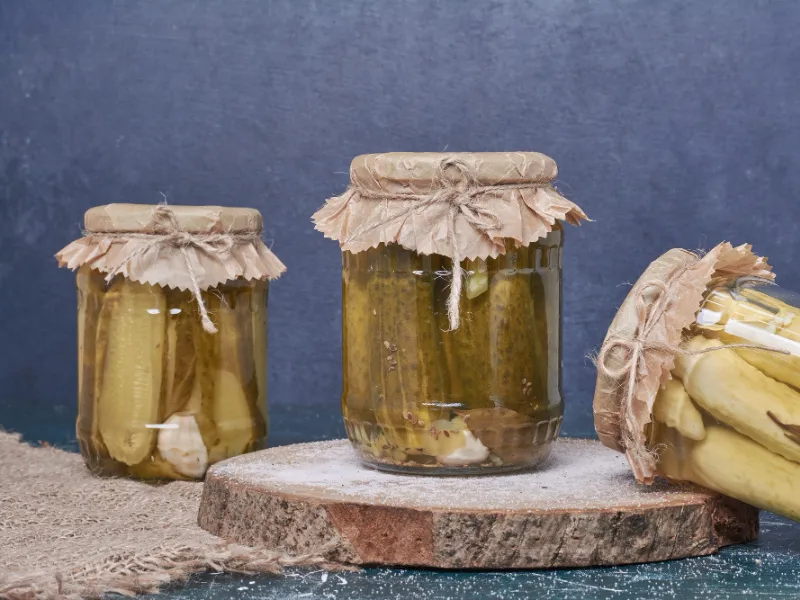
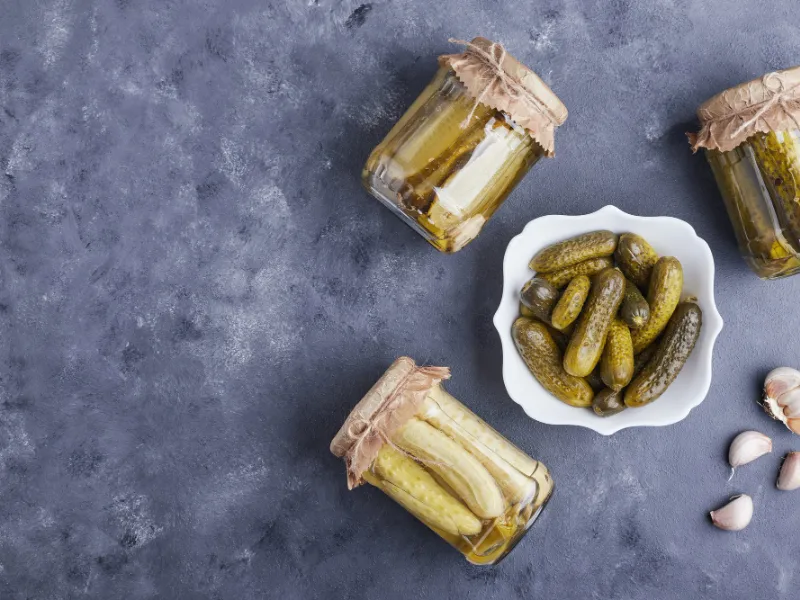
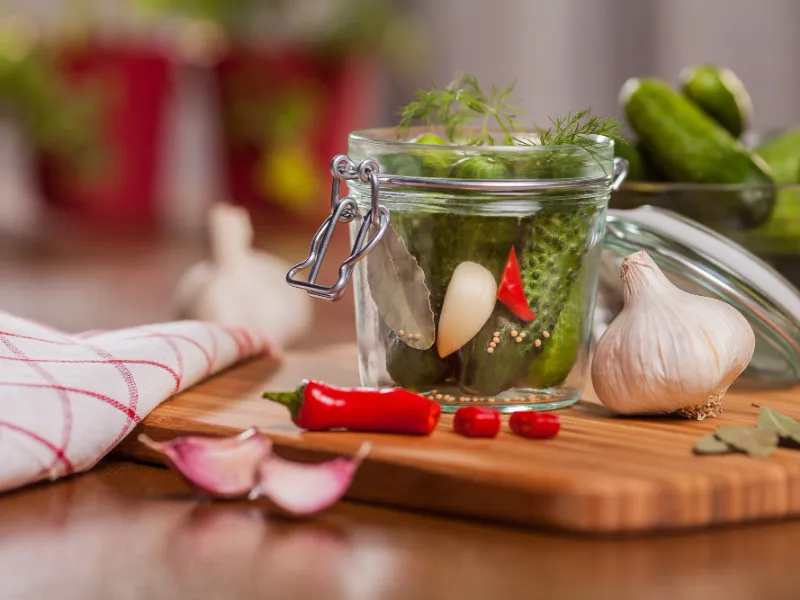 |
Try making simple homemade pickles using just vinegar, cucumber, and your favourite spices, no sugar needed!
These options can satisfy your pickle craving without causing spikes in your blood sugar. Enjoy in moderation!
6. How Many Pickles Can a Diabetic Eat Safely?
Moderation is key when it comes to pickles. While they can be a healthy addition to your diet, you should avoid overdoing them.
- Simple Advice:
Stick to 1–2 small pickles per day.
This amount helps you enjoy their flavor and benefits without overloading on sodium. - Personal Tip:
I usually recommend treating pickles like a snack, not a meal replacement. While pickles are tasty, they shouldn’t be the main focus of your meals.
Enjoy them as a side or a snack for extra flavor, but not as the primary part of your diet.
Picking the right pickle is easier than you think. Here’s how!
7. How to Pick the Best Pickles (Smart Buying Tips)
When choosing pickles, it’s essential to read the label carefully. Here’s what to look for:
- No Added Sugar:
Choose pickles that don’t have added sugars. Sweet pickles often contain hidden sugars that can spike blood sugar levels.
Look for pickles labelled “sugar-free” or “no added sugar.”
- Low Sodium:
Pickles can be high in sodium, which is a concern for people with diabetes, especially if you also have high blood pressure.
Opt for pickles with less than 300 mg of sodium per serving.
- Natural Ingredients:
Look for pickles made with simple, natural ingredients like cucumbers, vinegar, salt, and spices. Avoid ones with artificial preservatives or additives.
The shorter the ingredient list, the better!
| 7.1 Example of a “Good” Label |
|---|
|
| 7.2 Example of a “Bad” Label: |
|---|
|
Curious to learn more? Check out our next article on Diabetes.
8- Conclusion: Can Diabetics Eat Pickles?
So, guys, in this article, we’ve covered the question Can Diabetics Eat Pickles? in detail. In my experience, a few pickles here and there can actually be a smart addition to a diabetic meal plan, if you pick the right kind.
I recommend choosing dill or homemade pickles without added sugar and keeping an eye on your sodium intake.
Found this helpful? Share it with your friends and drop a comment below if you have any questions.
9- FAQs: Can Diabetics Eat Pickles?
Some pickles are high in salt and sugar, which can raise blood pressure and blood sugar. Always choose low-sodium, sugar-free options.
Bread and butter pickles are sweet pickles and usually contain a lot of sugar. It’s better to avoid them or find a sugar-free version.
Kosher pickles are usually low in sugar but can be high in salt. They’re fine in small amounts if you watch your sodium intake.
Not really. Mango pickles often have added sugar and oil, which can make blood sugar harder to control.
Yes, both pickles and olives can be good low-carb snacks! Just make sure they are not packed with extra salt or sugar.
It depends. Homemade lemon pickles without sugar are okay, but store-bought ones often have lots of salt and oil.
Pickles can be a safe snack for type 1 diabetics, too, as long as they are low in sugar and salt.
There’s no strong proof that pickle juice lowers blood sugar. Also, too much can raise blood pressure because of high salt.
Most plain pickles do not raise blood sugar much because they have very few carbs. Watch out for sweet pickles, though.
Good snacks include nuts, boiled eggs, cheese sticks, plain yogurt, veggie sticks, and yes, small amounts of pickles!
Plain mayonnaise (no added sugar) can be okay in small amounts, but it’s high in fat, so portion control is important.
10- References
At MedicaWire, all medically sensitive content is reviewed by licensed healthcare professionals. Our team ensures that the information you read is accurate, up-to-date, and based on trusted medical sources.
Learn how we maintain high standards by reading our Editorial Policy.
📚 Sources
1- Murillo, S., Mallol, A., Adot, A., Juárez, F., Coll, A., Gastaldo, I., & Roura, E. (2022). Culinary strategies to manage glycemic response in people with type 2 diabetes: A narrative review. Frontiers in Nutrition, 9, 1025993. https://doi.org/10.3389/fnut.2022.1025993
2– Medical News Today. Are pickles safe for people with diabetes?https://www.medicalnewstoday.com/articles/can-a-diabetic-eat-pickles
3- Stanford–In a Pickle? Unveiling Gut-Friendly Pickles for Your Health
4- Kim YA, Keogh JB, Clifton PM. Probiotics, prebiotics, synbiotics and insulin sensitivity. Nutr Res Rev. 2018 Jun;31(1):35-51. doi: 10.1017/S095442241700018X. Epub 2017 Oct 17. PMID: 29037268.
https://pubmed.ncbi.nlm.nih.gov/29037268
ℹ️ Our Promise
MedicaWire follows strict sourcing guidelines and only references peer-reviewed studies, academic institutions, and reputable medical associations. We update content regularly to reflect new health information.

- Be Respectful
- Stay Relevant
- Stay Positive
- True Feedback
- Encourage Discussion
- Avoid Spamming
- No Fake News
- Don't Copy-Paste
- No Personal Attacks



- Be Respectful
- Stay Relevant
- Stay Positive
- True Feedback
- Encourage Discussion
- Avoid Spamming
- No Fake News
- Don't Copy-Paste
- No Personal Attacks



